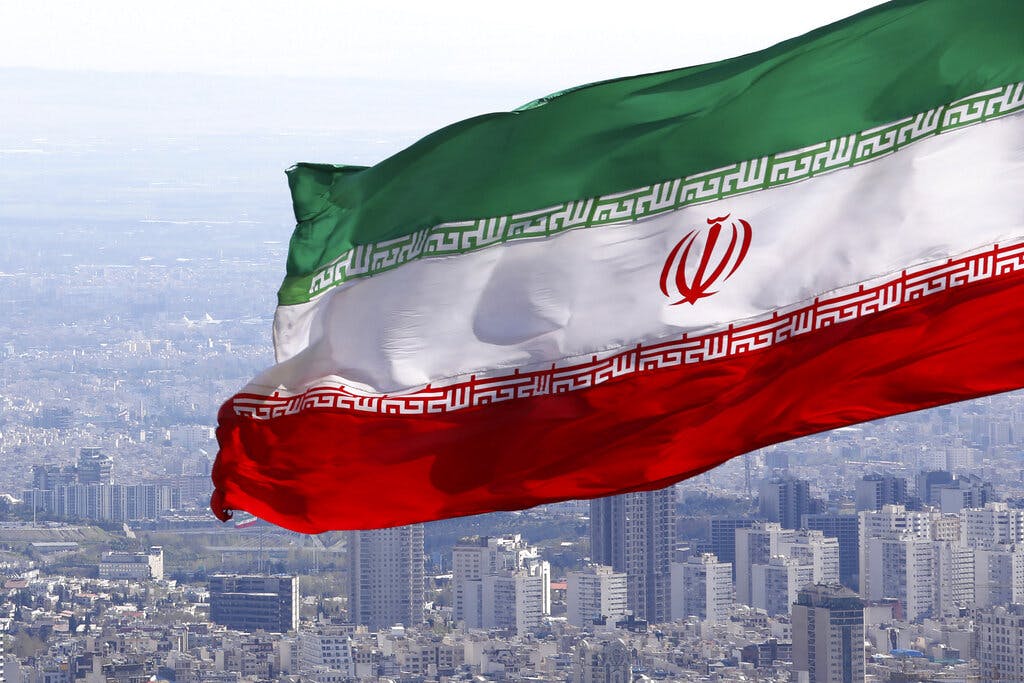As Clock Ticks on Iran Nuclear Deal Renewal, Only Tehran Benefits
America will lose faith in the possibility of a deal if it fails to conclude within weeks, Biden’s point man on Iran said — in December.

As negotiations drag on over renewing the Iran nuclear deal, on whose side is time? The question arises because the word in Vienna, Washington, and Tehran is that the nuclear deal is all but done — save for, the Iranians say, a “handful of suggestions.”
As Washington sees it, there is still some “back and forth” required before the dotted line is signed. Unidentified European and American officials have cautioned the past few days that negotiations over final details could last for some time — a week or two, perhaps.
Sound familiar? Here’s what President Biden’s Iran point man, Robert Malley, says: If talks “continue at their current pace, we have some weeks left but not much more than that, at which point, I think, the conclusion will be that there’s no deal to be revived.”
Here’s the catch: Mr. Malley made that statement in December, indicating that America would lose faith in the possibility of a deal if it failed to conclude within weeks. He made that claim in testimony before Congress after Tehran finally relented on going to the negotiating table at Vienna.
His remarks followed months of Washington pleading to renew the 2015 Joint Comprehensive Plan of Action there. The mantra survived for months after the Islamic Republic finally agreed to indirectly negotiate with Mr. Malley.
Tehran demanded to use European and Russian diplomats as proxies, while Mr. Malley kept saying a deal must be concluded in “weeks” — or else. That “else”never materialized, though, even after the weeks turned into long months.
“This is a negotiation, with regular back and forth,” a National Security Council spokeswoman, Adrienne Watson, is quoted as saying today. “We are studying the Iranian response and coordinating with our E3 allies. We will not negotiate in public. Some gaps have closed in recent weeks but others remain.”
At Tehran, multiple sources now report that a deal to return to the JCPOA could be finalized at Vienna as soon as next week — “if the US meets Iran’s ‘handful of suggestions raised’ in its latest proposal.”
It’s deja vu all over again, to quote Yogi Berra, except that realities have changed after more than a year has passed since Iranian diplomats started toying with Mr. Malley & Company. Iran has gained a lot while America has pushed for an ever-elusive deal.
“We have no credibility anymore,” the research director at United Against Nuclear Iran, Jason Brodsky, told the Sun. The Iranians “don’t take us seriously” and they “only benefit from the current state of play.”
In a Twitter thread, Mr. Brodsky wrote that even while America remained committed to diplomacy, Iran has attempted to assassinate American officials, including former Cabinet members, and dissidents on our soil.
The Iranians also plotted a cyber attack against a Boston children’s hospital; took a number of Europeans hostage; and fired at an oil tanker, Mercer Street, killing two European crewmen.
During all that time, America and Europe imposed “no deadlines, ever diminishing red lines, lots of statements, and so little action,” Mr. Brodsky wrote. Tehran’s negotiators — with the aid of Russia, no less — forever dangle the prospect of finalizing the Biden-coveted JCPOA renewal even while the purity of uranium enrichment has shot up to 60 percent at Iranian deep-dug plants. Iran has installed next-generation centrifuges and is now considered by some to be on the threshold of becoming a nuclear-armed country.
Supporters of JCPOA renewal blame President Trump for walking out on the original 2015 deal and replacing it with a “maximum pressure” policy. Opponents point out that Iran made its most decisive strides toward a bomb, including by amping up enrichment, after it became clear that Mr. Biden won the election in November 2020.
Yet, that debate may already be moot.
A deal would only be fully implemented four months after it is reached at Vienna — whenever that may be, if at all. That timeline likely brings us to early or mid-2023. By the end of that year, according to the original JCPOA, all constraints will be removed on Iran’s ballistic missiles — a necessary component of a deliverable nuclear weapon.
The 2015 deal contained several such “sunset clauses.” By January 2031, all constraints on Iran’s nuclear program will completely expire. Those clauses were based on the tacit understanding that as diplomacy takes hold, each side would gradually gain the trust of the other.
Regardless of which American president is to be blamed, that premise is no longer valid. The fast approaching sunset clauses now favor the Islamic Republic, whose officials are increasingly candid about their desire to become a nuclear-armed state — or at least threaten all enemies with the prospect of being on the threshold of becoming one.
No wonder the Islamic Republic keeps playing for time at every turn. The question remains, though, why America would participate in this game.

